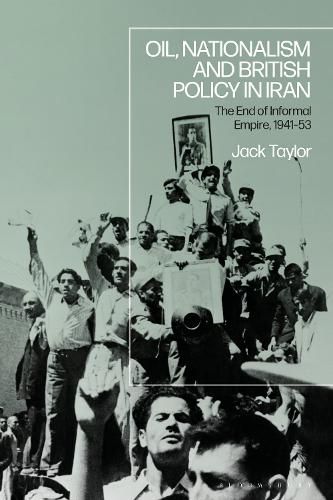Readings Newsletter
Become a Readings Member to make your shopping experience even easier.
Sign in or sign up for free!
You’re not far away from qualifying for FREE standard shipping within Australia
You’ve qualified for FREE standard shipping within Australia
The cart is loading…






As new nations were formed from the declining British Empire, a murky world of diplomats, oil executives and spies were determined to maintain London's grip on Iran and its strategic oil reserves. Directed from Whitehall by successive governments, this book explores the complexities and ambiguities of British policy in Iran and demonstrates its centrality to post-war imperial reorientation.
Situating Iran within Britain's 'informal empire,' Jack Taylor demonstrates that Clement Attlee's Labour Government saw Iranian oil as critical to the construction of a domestic New Jerusalem, and used coercion, propaganda, and espionage to preserve their control over it. In doing so, they were forced to confront not only the emerging Cold War, but local resistance expressed through diverse forms including trade unionism, Soviet-inspired Marxism, and popular nationalism.
Oil, Nationalism and British Policy in Iran offers new insight into the scale of British interference in Iran and its ultimate failure. It reveals that as London's policy floundered the United States independently took steps to safeguard their own regional economic and security interests. Although British actors were critical in the operation to depose Prime Minister Mohammad Mossadegh following his government's nationalisation of the oil industry, they were ultimately unable to sustain their informal empire in Iran.
$9.00 standard shipping within Australia
FREE standard shipping within Australia for orders over $100.00
Express & International shipping calculated at checkout
As new nations were formed from the declining British Empire, a murky world of diplomats, oil executives and spies were determined to maintain London's grip on Iran and its strategic oil reserves. Directed from Whitehall by successive governments, this book explores the complexities and ambiguities of British policy in Iran and demonstrates its centrality to post-war imperial reorientation.
Situating Iran within Britain's 'informal empire,' Jack Taylor demonstrates that Clement Attlee's Labour Government saw Iranian oil as critical to the construction of a domestic New Jerusalem, and used coercion, propaganda, and espionage to preserve their control over it. In doing so, they were forced to confront not only the emerging Cold War, but local resistance expressed through diverse forms including trade unionism, Soviet-inspired Marxism, and popular nationalism.
Oil, Nationalism and British Policy in Iran offers new insight into the scale of British interference in Iran and its ultimate failure. It reveals that as London's policy floundered the United States independently took steps to safeguard their own regional economic and security interests. Although British actors were critical in the operation to depose Prime Minister Mohammad Mossadegh following his government's nationalisation of the oil industry, they were ultimately unable to sustain their informal empire in Iran.